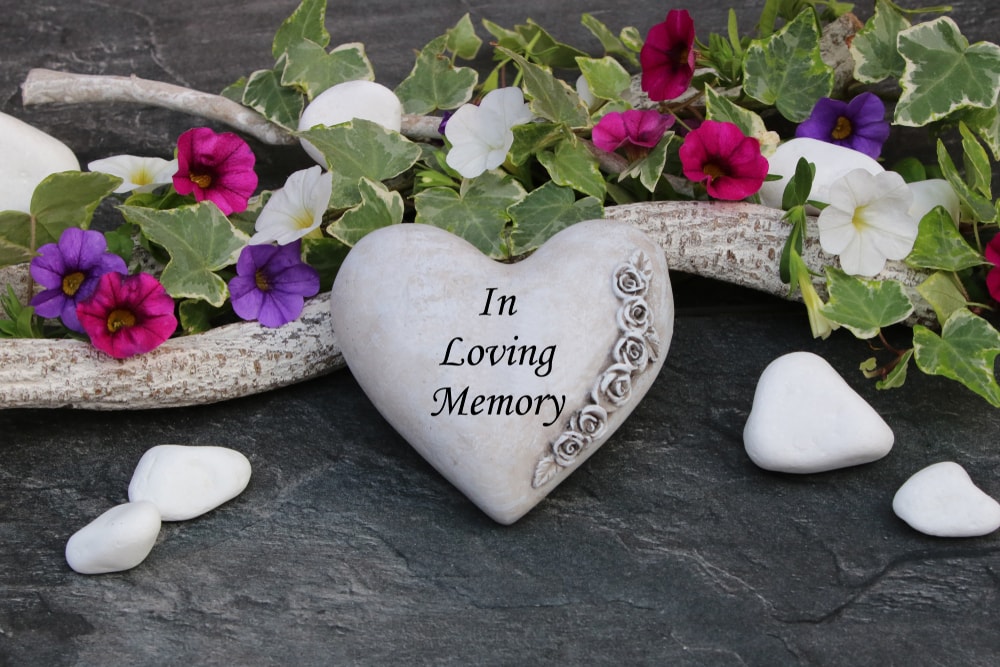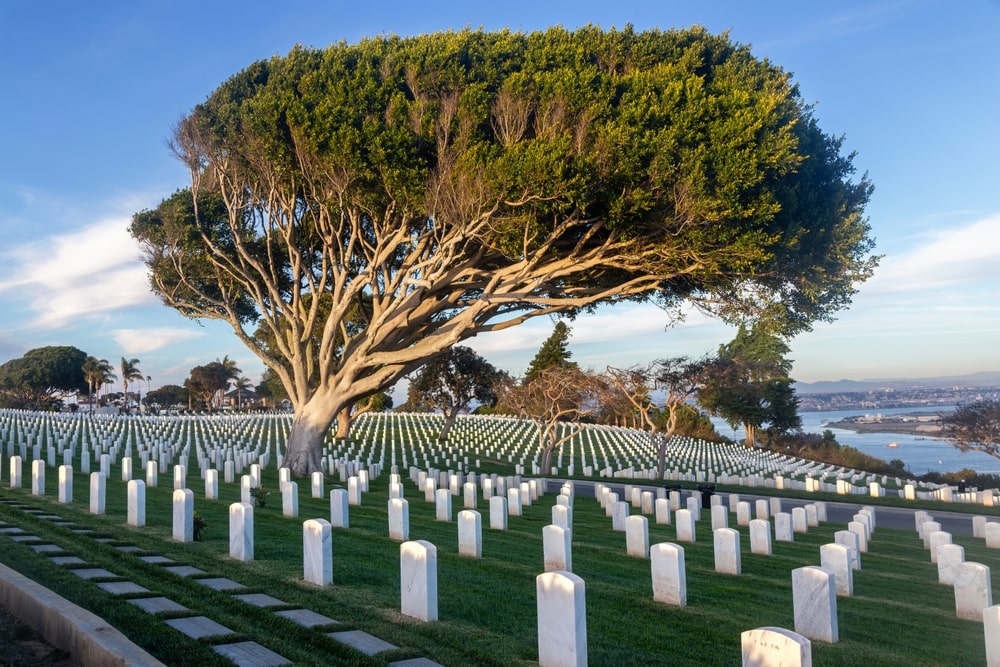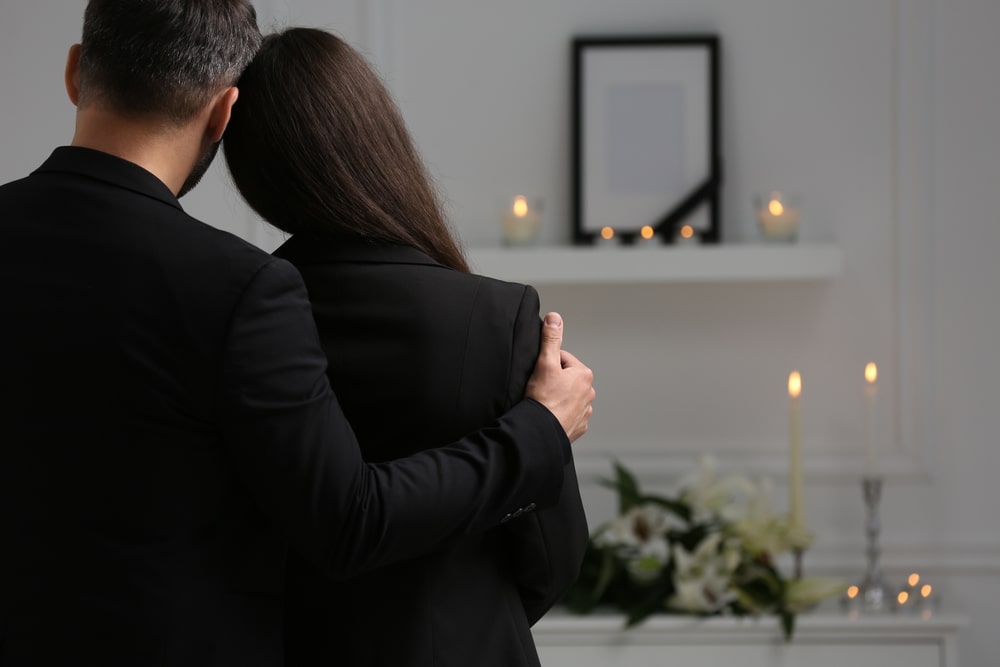When a close loved one dies, you may be asked to give a eulogy. So, you may be wondering, where do I start? First of all, what is a eulogy? How do I write one? And how can I share the essence of the person I loved with others in a way that will make sense to them?
Giving a eulogy is essentially telling your loved one’s story. The eulogy allows everyone to look back, remember, grieve, and truly honor your loved one’s unique personality. Oftentimes, mourners only know one or two sides of a person’s life. However, at the funeral or memorial service, they get a broader picture, with all of its heartaches, triumphs, and joys.
Nationally respected grief counselor and author, Dr. Wolfelt, puts it this way: “For mourners, telling the story is central to healing. In the context of the funeral ceremony, the eulogy is the grand, public telling of the story that unites” everyone who has come together to mourn.
How Does a Eulogy Help Us Share a Loved One’s Legacy?
The eulogy (also called “homily” or “time of remembrance”) is a time set aside to specifically and personally remember and honor a person’s life. Family, friends, clergy, or colleagues may come forward to share stories about the deceased’s life and impact. This is a time to talk about what your loved one left behind and what you will remember about them for the rest of your life. It’s a time to discuss what they imparted and how they left a mark on the world. This could mean sharing family stories, what they were passionate about, causes that were close to their heart, how they loved others, and how they made people laugh.
One person may deliver the eulogy or several people may be invited to speak. Often, the family meets with a clergy member or celebrant to share stories and what they’d like the eulogist to say. Sometimes people speak from their heart, one after another. You get to decide how you want it to be done and what will best honor your loved one’s life and legacy.
How Do Eulogies Help Us Grieve?
The eulogy is an important part of the journey through grief because it helps meet what Dr. Alan Wolfelt calls the six needs of mourning: 1) acknowledge the reality of the death, 2) embrace the pain of the loss, 3) remember the person who died, 4) develop a new self-identity, 5) search for meaning, and 6) receive ongoing support from others.
When preparing a eulogy, you can help those who are attending the funeral by addressing each of these needs.
1. Eulogies help us acknowledge the reality of loss
After losing a loved one, it can take a little while for our minds to catch up. Our first instinct is to deny the reality of loss because it’s hard to grasp all that we’ve lost. During the eulogy, you will be forced to use the past tense to tell the story of the life lived. Speaking in past tense helps reinforce the reality that a death has occurred and our loved one really is gone. Until we accept that truth, there is no way to move forward.
2. Eulogies help us move toward the pain of the loss
As humans, we naturally want to move away from pain. But in order to heal, we have to let ourselves look back before we can move forward. For a brief moment in time, the funeral and the eulogy especially gives every mourner the chance to reflect on and experience the pain of the loss together.
3. Eulogies give us the opportunity to recall and share cherished memories
One of the most common ways to deal with grief is to talk about the person who has died. It’s about remembering them, recalling favorite moments, discussing the wisdom they imparted, or even learning new things about the person you loved. As we come together as a group to mourn, we all bring different memories, different perspectives. That’s why a eulogy not only helps us remember the person who has died – it also reveals facets of that person we may not have known. Together, the words spoken and memories shared create a beautiful opportunity to reflect and take a step toward healing.
4. Eulogies help us develop a new self-identity
As we hear about another person’s life, we also reflect on our own. What can we learn from this person’s life? Did they change the world for the better? What can I do to be more like them? We consider what we need to change in ourselves to bring greater good to those around us and what we must do to make the impact we want to on the world. We emerge from the story of a life inspired, hopeful, and transformed.
5. Eulogies provide us with an opportunity to search for meaning
When faced with the reality of death, we often ask ourselves questions and search for meaning. Did this person live a good life? Why was this person taken from us? Why now? Why this way? What happens next? The eulogy may not be able to help answer these big universal questions, but it helps us explore our feelings about the loss. Through the laughter, the tears, memories, and stories, we see just how meaningful one life can be.
6. Eulogies help us receive support from others
Finally, grief can feel very lonely. But the eulogy provides everyone with a common experience that brings them together and creates connection. Everyone present feels the strength of solidarity, knowing that the person who lived impacted everyone’s life in some way. We tell the love story, not just once at the funeral, but over and over, at every gathering, every holiday, every birthday and anniversary. We tell the story to friends who never knew the person we loved, we tell the story on social media, and to family members who know exactly what we mean. And we begin, little by little, to heal.

The pain of the loss may never quite go away. The sharpness and immediacy of the pain will heal over time, but the scar will always remain. But scars can tell their own story — they become a part of your story. And they represent a deep and abiding love that transcends death.
Embrace the eulogy and make it a beautiful opportunity to celebrate your loved one’s life – they are worth it.
If you are interested in learning about the other essential elements of a funeral, click here.
If you need to write a eulogy, click here for some helpful tips on how to craft a eulogy.







